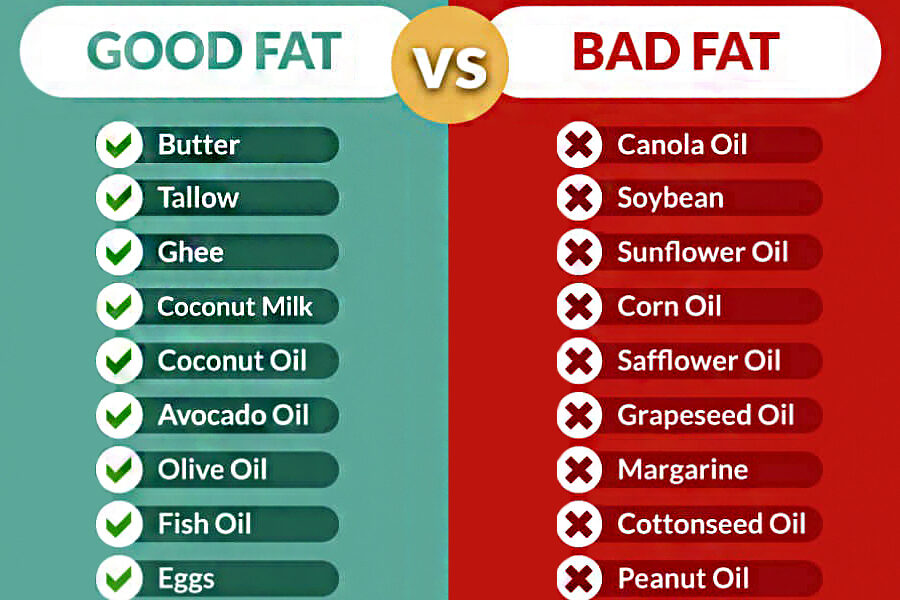- Home
- About
- Portfolio
Crush the Match – Medical School and Residency Platform
Food¢ense – Curbing Childhood Obesity and Food Waste
HealthStack – Shared and Jailed HIPAA Hosting $50
Marta Care – Let Us Help When You Can’t
MD Idea Lab – We Build Prototypes for Doctors
Nervcell – The Healthcare Web Browser
Patient Keto – Personalized Keto Medicine and Telehealth
SwipeChart – Rapid EMR Interface
Treatment Scores – Quantifying the Science of Medicine
Treatments – Diagnosed. Now What?
VIDRIO – Google Glass and EMR Interface
- Blog
- Contact
Fats: The Primary Fuel Source, with Sugars as a Backup – Supported by Biochemistry
Introduction:
The debate surrounding the optimal fuel source for the human body has garnered significant attention in recent years. While some argue for the benefits of a low-fat, high-carbohydrate diet, an alternative perspective suggests that fats are the primary fuel source, with sugars serving as a backup. In this article, we will present an argument highlighting the advantages of fats as the body’s main energy provider, supported by insights from biochemistry.
- Efficient Energy Release and Sustained Endurance:
Biochemically, fats offer a highly efficient energy source. When compared to carbohydrates, fats contain a higher number of carbon atoms and more than twice the number of calories per gram. Through a process called beta-oxidation, fatty acids are broken down into acetyl-CoA molecules, which enter the citric acid cycle (also known as the Krebs cycle) to produce energy-rich molecules such as ATP.
This metabolic pathway generates a greater amount of ATP per molecule of fat compared to carbohydrates, providing a sustained and long-lasting energy supply. The slow and steady release of energy from fats is particularly beneficial for endurance activities, allowing individuals to maintain performance over extended periods without relying on frequent carbohydrate consumption.
- Stable Blood Sugar Levels and Reduced Insulin Response:
Biochemically, the consumption of fats has minimal impact on blood sugar levels. In contrast, the rapid breakdown of carbohydrates, especially high-glycemic ones, leads to a surge in blood glucose levels. In response, the pancreas releases insulin to facilitate the uptake of glucose into cells, resulting in a temporary increase in energy levels.
However, the subsequent drop in blood sugar levels can lead to fatigue, cravings, and decreased performance. In contrast, fats provide a more stable and sustained release of energy without triggering significant fluctuations in blood sugar levels or requiring large insulin responses.
- Metabolic Adaptation: Ketosis and Fat Adaptation:
Biochemistry also supports the argument that fats can be the primary fuel source through metabolic adaptations such as ketosis and fat adaptation. When carbohydrate intake is limited, the body initiates ketogenesis, a process in which fatty acids are converted into ketone bodies (e.g., acetoacetate, beta-hydroxybutyrate, acetone).
Ketones can cross the blood-brain barrier and serve as an alternative fuel source for the brain, reducing the need for glucose. This adaptation allows individuals to efficiently utilize fats for energy, leading to increased fat oxidation and a decreased reliance on carbohydrates.
Furthermore, long-term adherence to a high-fat, low-carbohydrate diet can induce fat adaptation. This process involves upregulation of enzymes and transporters involved in fat metabolism, enhancing the body’s ability to derive energy from fats and improving endurance performance.
Conclusion:
The biochemistry of fats strongly supports the argument that they can serve as the primary fuel source for the human body. Fats offer efficient energy release, sustained endurance, stable blood sugar levels, and the potential for metabolic adaptations like ketosis and fat adaptation.
While sugars and carbohydrates still have their place in our diet, considering fats as the primary fuel source, supported by biochemistry, can lead to numerous health benefits. It is essential to understand individual needs, goals, and potential underlying health conditions when determining the optimal macronutrient ratios. Ultimately, a balanced approach that prioritizes healthy fat sources and includes sugars as a secondary fuel source can promote overall well-being and performance.
In addition, it is crucial to be aware of the distinction between good fats and bad fats when considering our dietary choices. Good fats, derived from natural sources, provide nourishment and support overall health, while bad fats, commonly found in seed oils, can have negative implications for our well-being.
Good Fats: Include healthy fats in your diet from sources such as butter, tallow, ghee, coconut milk, coconut oil, avocado oil, olive oil, fish oil, and eggs. These fats offer a range of health benefits, including essential nutrients, support for brain function, heart health, and reduced inflammation.
Bad Fats: On the other hand, it is advisable to limit or avoid the consumption of bad fats, particularly seed oils. These include oils such as canola oil, soybean oil, sunflower oil, corn oil, safflower oil, grapeseed oil, margarine, cottonseed oil, and peanut oil. These oils are often highly processed and contain high levels of omega-6 fatty acids, which can promote inflammation and imbalance in the body.
By being mindful of the types of fats we consume, we can make informed choices to support our overall health and well-being. Opt for good fats from natural sources while minimizing the intake of bad fats derived from seed oils. A balanced approach to fat consumption can contribute to an optimized diet and enhance our overall health.
Author: Dr. Stephen Fitzmeyer, M.D.
Physician Informaticist and Founder of Warp Core Health
Connect with Dr. Stephen Fitzmeyer:
Twitter: @PatientKeto
LinkedIn: linkedin.com/in/sfitzmeyer/

